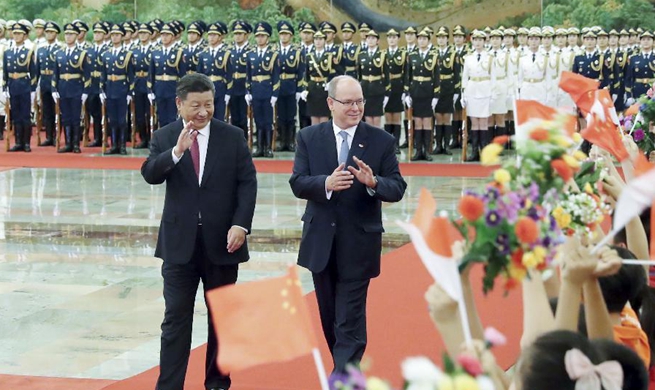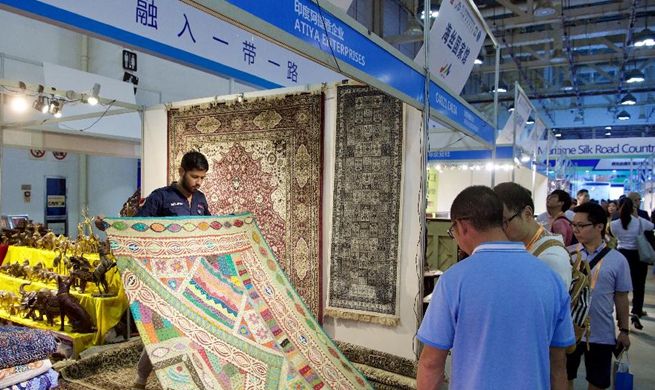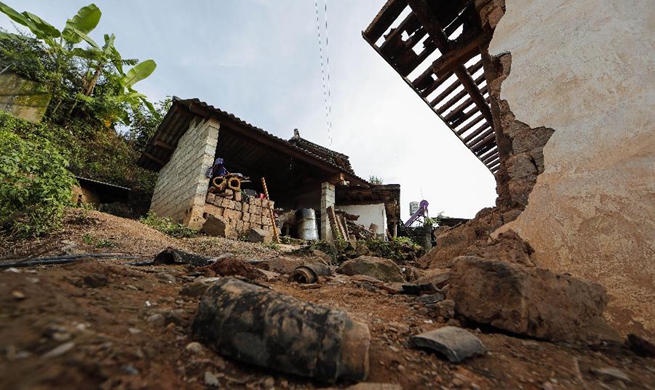ANKARA, Sept. 8 (Xinhua) -- As the Turkish currency continues to depreciate, Turkey saw more foreign travelers flocking into the country with good value holiday deals in the summer.
Turkey's tourism sector was hit in 2015 and 2016 by a series of terror attacks in major cities and a failed military coup, while it has now become once again a needed source of foreign currency for the country's economy.
Turkey's tourism income rose 30 percent year on year in August and the country could gain 32 billion U.S. dollars in foreign currency by the end of the year, according to figures released by the Ministry of Tourism. The official expectation for 2018 is around 40 million visitors.
During the summer and the Muslim Eid al-Adha holiday in late August, many hotels on the sunny Mediterranean and Aegean coast have reportedly full occupancy, a relief for a battered sector which managed to recover this year.
The lira has lost more than 40 percent of its value against the U.S. dollar since the start of the year, especially in August mainly because of disputes with the United States.
The Turkish government has taken measures to fight an "economic war" against its NATO partner, the United States.
Metin Tuna, the reception manager of a five star luxury Istanbul hotel located on the Asian side of the historic city, told Xinhua that the plunging Turkish currency has seen tourism interest from the Gulf countries skyrocketing since July, when the turmoil started.
"If it was not for our Arab guests, I honestly believe that we would be forced to close because our occupancy rate fell as low as 20 percent after the bomb attacks (claimed by the Islamic State in Istanbul in 2015) and the coup attempt in 2016," said Tuna.
Tourism professionals have indicated increased interest of travelers from Britain and the rest of Europe who are finding holiday more affordable than ever. Chinese tourists are also taking advantage of the slip in currency value.
China declared 2018 as the Turkey Tourism Year and the number of Chinese tourists visiting Turkey rose dramatically in the first seven months of the year.
"This year, the number of Chinese tourists will probably hit a peak point, even go beyond the previous record of 400,000 in 2015, before the terrorist attacks," said Irfan Karsli, CEO of Ligarba Travel in Istanbul.
"We have attained a very good momentum and the depreciation of the lira is also a factor which has contributed to the surge of Chinese tourists arrival," said Karsli whose company deals essentially with Chinese and far eastern tourists.
The tumbling of the Turkish currency has also created a craze in luxury shopping.
As exchange rates could not be reflected in prices each day, long queues of tourists from Asia and Arab countries waited to be served in front of luxury boutiques.
"One person who came bought seven Rolex watches in one go," said Karsli with a grin.
Turkey, a meeting point between Europe and Asia and a rich cultural heritage, targets to increase the share of tourism revenues in GDP from four to eight percent and boost quality in tourism rather than quantity.
For the first time in a decade, visitor numbers declined by nearly five percent in Spain, a busy holiday destination, according to official figures, as tourists headed to cheaper destinations, such as Turkey or Egypt.
Russians have also provided an unexpected boost to Turkey's tourism industry amid an increasing political and economic cooperation between the two countries.
A recent report predicted that 2018 will be a record year, with six millions Russians expected to visit Turkey.

















